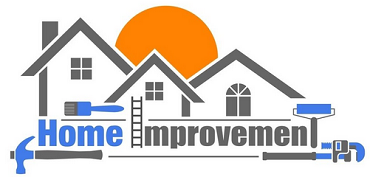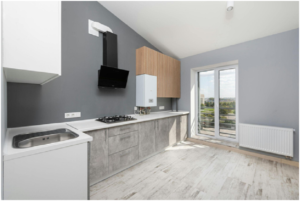Solar Panels: A Sustainable Solution for Homeowners

As the world continues to prioritize sustainable living and combat climate change, homeowners are increasingly turning to renewable energy sources to power their homes. Among these options, solar panels have emerged as a popular and effective solution. Harnessing the power of the sun, solar panels offer numerous benefits for homeowners looking to reduce their carbon footprint while saving on energy costs. In this article, we will explore the many advantages of solar panels and why they have become a sustainable solution for homeowners.
Harnessing Clean and Renewable Energy
Solar panels convert sunlight into electricity using photovoltaic cells. This process does not produce harmful greenhouse gas emissions, making solar power a clean and renewable energy source. By opting for solar panels, homeowners can significantly reduce their reliance on fossil fuels and contribute to a greener and more sustainable future.
Cost Savings on Energy Bills
One of the primary motivations for homeowners to invest in solar panels is the potential for significant cost savings on energy bills. By generating electricity from the sun, homeowners can offset their reliance on the traditional power grid, resulting in reduced monthly electricity costs. Additionally, in some regions, excess energy generated by solar panels can be sold back to the grid, allowing homeowners to earn credits or even profit from their solar investment.
Long-Term Investment and Increased Home Value
Installing solar panels is a long-term investment that offers a range of financial benefits. Studies have shown that homes equipped with solar panels have a higher resale value compared to non-solar homes. Potential buyers are attracted to the idea of owning a sustainable and energy-efficient property, making solar panels a valuable addition that can increase a home’s market appeal.
Environmental Impact and Sustainability
Climate change is a global concern, and homeowners can play a vital role in reducing their environmental impact. Solar panels help to combat climate change by reducing carbon emissions associated with electricity production. By adopting solar power, homeowners contribute to the transition towards cleaner and more sustainable energy sources, ensuring a greener future for generations to come.
Government Incentives and Tax Benefits
To encourage the adoption of solar energy, many governments and local authorities offer incentives and tax benefits to homeowners who invest in solar panels. These incentives can include tax credits, rebates, and grants, significantly reducing the upfront costs of installation. Additionally, some regions allow homeowners to claim a portion of their solar investment as a tax deduction, further enhancing the financial appeal of going solar.
Low Maintenance and Durability
Solar panels are designed to withstand various weather conditions and require minimal maintenance. Typically, occasional cleaning and inspection are sufficient to keep them operating at peak efficiency. With no moving parts, solar panels have a long lifespan, often lasting for 25 to 30 years or more. This durability makes solar panels a reliable and cost-effective investment for homeowners.
Solar panels offer a sustainable and eco-friendly solution for homeowners looking to reduce their reliance on traditional energy sources. By harnessing the power of the sun, homeowners can enjoy numerous benefits, including cost savings, increased home value, and a reduced carbon footprint. With government incentives and tax benefits available in many regions, the financial appeal of solar panels continues to grow. As the world transitions towards a clean energy future, investing in solar panels is not only a responsible choice but also a step towards a more sustainable and resilient home.
What are solar panels?
Solar panels, also known as photovoltaic (PV) panels, are devices that convert sunlight into electricity. They are made up of numerous solar cells, typically composed of silicon, which absorb photons from sunlight and generate a flow of electrons. These solar cells are interconnected to form a solar panel, and multiple panels can be installed together to create a solar array. Solar panels come in various sizes and configurations, and they can be mounted on rooftops, ground-mounted structures, or integrated into building materials.
How do solar panels work?
Solar panels work through the process of photovoltaic conversion. When sunlight hits the solar cells on a panel, it excites the electrons within the cells, causing them to flow. This flow of electrons generates direct current (DC) electricity. An inverter connected to the solar panel system then converts the DC electricity into alternating current (AC), which is the type of electricity used to power homes and appliances. The AC electricity is then either consumed immediately within the home or fed into the electrical grid for credit or later use. By continuously capturing sunlight and converting it into electricity, Solar Panels Marbella Spain provide a clean and sustainable source of power.
The pros and cons of a solar panel system
Pros:
Environmental Benefits: Solar panels produce clean energy, reducing reliance on fossil fuels and helping combat climate change. By adopting solar power, homeowners can significantly reduce their carbon footprint and contribute to a greener planet.
Cost Savings: Solar panels can lead to substantial savings on energy bills over time. By generating electricity from the sun, homeowners can offset their reliance on the grid, potentially reducing or even eliminating their monthly electricity costs.
Increased Home Value: Homes equipped with solar panels tend to have higher resale values. Solar panels are seen as desirable features for potential buyers, as they offer energy efficiency and reduced long-term utility expenses.
Cons:
Upfront Costs: The initial investment for installing a solar panel system can be relatively high. While costs have decreased over the years, homeowners should carefully consider their budget and financing options.
Weather Dependence: Solar panels require sunlight to generate electricity, which means their output is weather-dependent. In regions with limited sunlight or significant cloud cover, solar panels may not generate as much energy.
Space and Compatibility: The installation of solar panels requires sufficient space, ideally with unobstructed access to sunlight. Additionally, the compatibility of solar panels with a home’s electrical system should be assessed, as some older systems may require upgrades or modifications.
What is battery storage?
Battery storage, also known as solar battery systems or energy storage systems, is a technology that allows homeowners to store excess electricity generated by their solar panels. Instead of sending the surplus energy back to the grid, it can be stored in batteries for later use. This stored energy can be utilized during times when the solar panels are not producing electricity, such as at night or during cloudy periods. Battery storage systems provide greater energy independence and can increase the efficiency and reliability of a solar panel system.
Would I benefit from Battery Storage?
The benefits of battery storage depend on various factors, including your energy usage patterns, the availability of net metering or feed-in tariffs, and the cost of electricity from the grid. If you have high electricity usage during non-sunlight hours or experience frequent power outages, battery storage can be advantageous. It allows you to use stored energy during peak demand periods, reducing reliance on the grid and potentially saving on electricity costs. Additionally, in areas where electricity rates are high or where incentives for storing excess energy are available, battery storage can provide additional financial benefits.
What’s the cost of a solar panel system with and without battery storage?
The cost of a solar panel system with or without battery storage varies depending on several factors, including the size of the system, the type and quality of solar panels, installation costs, and any additional components required. On average, a standard solar panel system without battery storage can cost between €5,000 and €15,000 per kilowatt (kW) of installed capacity. This estimate includes the cost of solar panels, inverters, mounting equipment, and installation.
Adding battery storage to a solar panel system increases the upfront cost. On average, a battery storage system can range from €5,000 to €10,000, depending on the storage capacity and battery technology. It’s important to note that battery prices have been decreasing over time, making them more affordable.
Solares Energies is at the forefront of providing advanced solar panels and air conditioning systems in Marbella, serving as your reliable partner in sustainable energy solutions. Our focus is on tapping into Marbella’s abundant sunlight, turning it into a resourceful stream of renewable energy through our top-tier solar panels. These panels are expertly designed to capture and convert the maximum amount of sunlight, offering both residential and commercial properties a chance to lower their energy costs and contribute to a sustainable future.
Moreover, Solares Energies takes pride in delivering a wide range of high-performing air conditioning systems tailored for Marbella’s warm climate. These systems are built to provide superior comfort, featuring energy-saving designs that allow you to maintain an ideal indoor temperature without worrying about excessive energy consumption. From small-scale solutions for your home to larger, more complex systems for your business, we’re committed to meeting all your air conditioning needs with our premium quality products.
With Solares Energies, you’re choosing a company with extensive industry experience, an unwavering commitment to quality, and a strong focus on customer satisfaction. Whether it’s solar panels or air conditioning systems, we’re here to provide Marbella with the very best solutions in renewable energy and temperature control.
Harness the power of the sun to cut down on your air conditioning bills, particularly in sun-drenched locales like Marbella. Solar panels convert sunlight into electricity, powering your home and air conditioning systems, often generating excess energy that can reduce or eliminate your energy bills. It’s not only an environmentally friendly choice but also a financially savvy one.
Are you searching for the best Air Conditioning Marbella Spain has to offer? Look no further. Our solar-powered air conditioning units offer superior cooling while contributing to significant energy savings. Connect with our team today to learn more about this profitable and sustainable investment. Let’s put Marbella at the forefront of renewable energy use and sustainable living.




